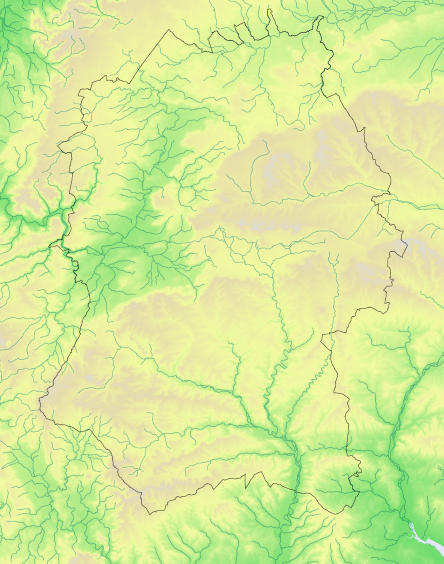Grey Heron Ardea cinerea
Winter abundance 1995–2000
Common resident/migrant, breeds in colonies, found widely by most waters
Atlas species lists
- Breeding distribution 1995–2000
- Summer abundance 1995–2000
- Winter distribution 1995–2000
- Winter abundance 1995–2000
- Breeding distribution 2007–2012
- Summer abundance 2007–2012
- Winter distribution 2007–2012
- Winter abundance 2007–2012
- Breeding distribution change
- Summer abundance change
- Winter distribution change
- Winter abundance change
More Grey Heron maps
- Breeding distribution 1995–2000
- Summer abundance 1995–2000
- Winter distribution 1995–2000
- Winter abundance 1995–2000
- Breeding distribution 2007–2012
- Summer abundance 2007–2012
- Winter distribution 2007–2012
- Winter abundance 2007–2012
- Breeding distribution change
- Summer abundance change
- Winter distribution change
- Winter abundance change
More maps for this atlas
Map explanation
This map shows the winter relative abundance of the species in Wiltshire, based on variation from the average, as revealed by the fieldwork for Birds of Wiltshire (Wiltshire Ornithological Society 2007).
Key
Relative to average
Nos tetrads

>50% fewer
55
12%

25-50% fewer
19
4%

Average +/- 25%
5
1%

25-100% more
8
2%

>100% more
4
1%
Total
91
21%

Not surveyed
Grey Herons breed sparsely in Mediterranean countries and much more commonly in north-central Europe, much of Asia and parts of Africa including Madagascar. In winter they disperse more widely around the Mediterranean and throughout most of Africa and its off-shore islands.
In Great Britain they are resident and widespread around lakes, along major river systems and in some coastal areas. Censuses of known heronries have been carried out annually since 1928 and show a steadily increasing underlying trend though with considerable fluctuations resulting from the species’s susceptibility to harsh winters.
In Wiltshire, the 1928 census recorded between 54 and 59 occupied nests at seven heronries. Since then the numbers have fluctuated as more heronries have been brought into the census, partly offset as others have been abandoned. Between 1972 and 2000 the average number of heronries was around 13 with between 140 and 168 occupied nests. There was a step change in 2004 when a detailed survey of the heronry on the Longford estate at Britford found that there were considerably more nests there that had previously been thought: 160 nests were counted, compared with just 30 in 2003. Since then there have been three-figure counts at Britford in most years, with a highest count of 198 there in 2010 contributing to a county-wide record of 324 occupied nests.
In winter Birds of Wiltshire recorded Grey Herons in 21% of the tetrads surveyed, suggesting that they were present in around 190 tetrads. Bird Atlas 2007-2011 recorded them in 368 tetrads. There was no comparable increase in summer where Birds of Wiltshire recorded them in 351 tetrads, marginally more that the 346 where they were recorded in Bird Atlas 2007-2011.
References
The following references are used throughout these species accounts, in the abbreviated form given in quotation marks:
“1968-72 Breeding Atlas” – Sharrack, J.T.R. 1976: The Atlas of Breeding Birds in Britain and Ireland. T. & A. Poyser
“1981-84 Winter Atlas” – Lack, P.C. 1986: The Atlas of Wintering Birds in Britain and Ireland. T. & A. Poyser
“1988-91 Breeding Atlas” – Gibbons, D.W., Reid, J.B. & Chapman, R.A. 1993: The New Atlas of Breeding Birds in Britain and Ireland 1988-91. T. & A. Poyser
“Birds of Wiltshire” – Ferguson-Lees, I.J. et al. 2007 : Birds of Wiltshire, published by the tetrad atlas group of the Wiltshire Ornithological Society after mapping fieldwork 1995-2000. Wiltshire Ornithological Society.
“Bird Atlas 2007-2011” – Balmer, D.E., Gillings, S., Caffrey, B.J., Swann, R.L., Downie, I.S. and Fuller, R.J. 2013: Bird Atlas 2007-2011: the Breeding and Wintering Birds of Britain and Ireland
“WTA2” – ("Wiltshire Tetrad Atlas 2 ") the present electronic publication, bringing together the Wiltshire data from “Birds of Wiltshire” and “Bird Atlas 2007-11”, together with data from further fieldwork carried out in 2011 and 2012.
"Hobby" - the annual bird report of the Wiltshire Ornithological Society.

